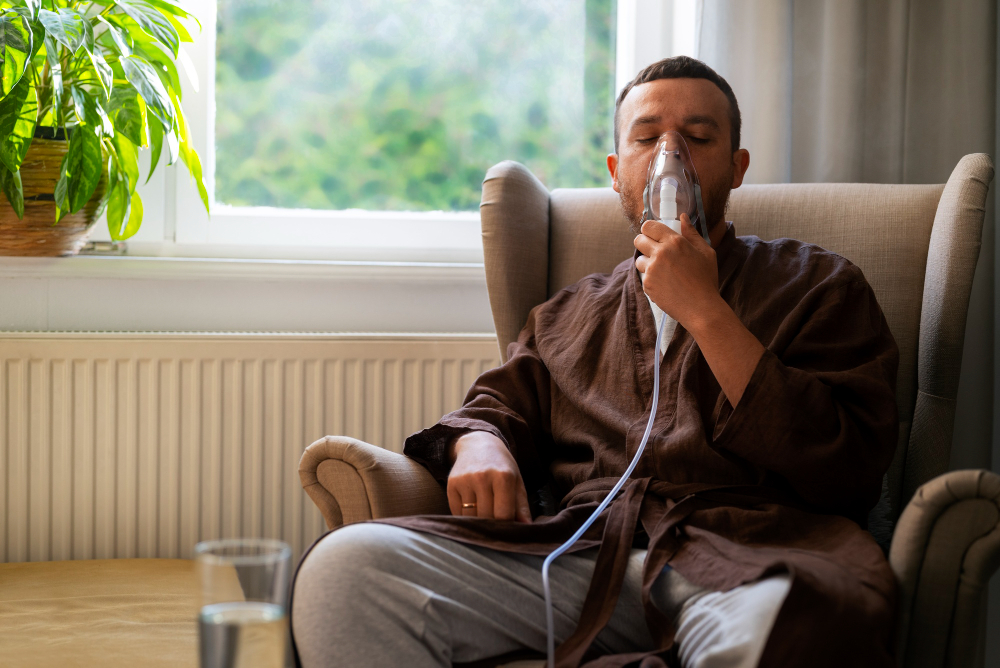
5 Signs You Might Need a Portable Oxygen Concentrator
Breathing is something most people rarely think about until it becomes difficult. For
individuals living with chronic respiratory conditions, maintaining adequate oxygen levels is
vital to ensuring overall health and quality of life. A portable oxygen concentrator can be a
life-changing device for those who require consistent oxygen support, offering freedom,
mobility, and independence. If you’re wondering whether it’s time to consider one, here are
five important signs to watch for.
1. Persistent Shortness of Breath
Shortness of breath, medically known as dyspnea, is often the first and most noticeable
symptom of declining respiratory health. While occasional breathlessness during intense
exercise or extreme stress can be normal, persistent difficulty breathing during everyday
activities like walking, climbing stairs, or even talking, is a red flag.
When the lungs cannot deliver enough oxygen to meet the body’s needs, the heart and
muscles must work harder, leading to fatigue and discomfort. A portable oxygen
concentrator can supplement oxygen levels, making breathing easier and improving
endurance for daily activities. Early intervention can significantly enhance the ability to
maintain an active lifestyle.
2. Frequent Fatigue and Lack of Energy
Oxygen is crucial for the production of energy at the cellular level. If you find yourself
feeling constantly tired, drained, or unable to complete daily tasks without taking frequent
breaks, it could be a sign that your body isn’t receiving enough oxygen.
Many people initially mistake this chronic fatigue for aging or other health issues, but it often
stems from an underlying respiratory condition. A portable oxygen concentrator can help
by providing your body with the oxygen it needs to fuel muscles and organs, potentially
restoring energy levels and improving your overall well-being.
3. Low Blood Oxygen Levels (Hypoxemia)
One of the clearest indicators that you may need supplemental oxygen is a diagnosis of
hypoxemia, which is an abnormally low level of oxygen in the blood. This condition can be
detected through a simple test called pulse oximetry, where a device clipped to your finger
measures the oxygen saturation in your blood.
Normal oxygen saturation levels typically range between 95% and 100%. If your readings
consistently fall below 90%, it may be time to consult your healthcare provider about oxygen
therapy. A portable oxygen concentrator can help maintain healthy blood oxygen levels,
reducing the risk of complications like heart strain, brain dysfunction, and organ damage.
4. Worsening Symptoms of Chronic Respiratory Conditions
If you have been diagnosed with a chronic respiratory disease such as Chronic Obstructive
Pulmonary Disease (COPD), pulmonary fibrosis, or severe asthma, pay close attention to the
progression of your symptoms. Increased coughing, wheezing, chest tightness, and
respiratory infections can signal that your current treatment plan may not be sufficient.
A portable oxygen concentrator can provide additional oxygen support tailored to your
needs, helping you manage flare-ups and improving your ability to stay active and engaged
with life. Early adoption of oxygen therapy can slow disease progression and improve long-
term health outcomes.
5. Difficulty Sleeping or Sleep Apnea Symptoms
Quality sleep is essential for physical and mental health, but respiratory issues can
significantly disrupt sleep patterns. Symptoms like waking up gasping for air, feeling tired
despite a full night’s sleep, and experiencing morning headaches could indicate nighttime
oxygen deprivation.
Some individuals develop sleep apnea, a condition where breathing repeatedly stops and
starts during sleep. If left untreated, sleep apnea can lead to serious health problems,
including high blood pressure, heart disease, and stroke.
Using a portable oxygen concentrator during sleep, especially one designed for overnight
use, can help maintain consistent oxygen levels throughout the night. This improves sleep
quality, enhances daytime alertness, and reduces the risk of complications associated with
poor oxygenation.
When to Talk to Your Doctor
If you recognize any of these signs in yourself or a loved one, it’s essential to seek medical
advice promptly. Only a qualified healthcare provider can properly evaluate your condition,
perform necessary diagnostic tests, and determine if supplemental oxygen therapy is
appropriate.
Your doctor may recommend additional tests like arterial blood gas analysis, chest X-rays,
lung function tests, or a sleep study to assess the severity of oxygen deprivation and identify
the most effective treatment options.
The Benefits of Early Intervention
Identifying the need for a portable oxygen concentrator early can have a profound impact
on your quality of life. It can help you maintain an active lifestyle, reduce hospital visits, and
decrease the risk of severe complications associated with chronic low oxygen levels.
Moreover, using a concentrator can lead to improvements in mood, cognitive function, and
the ability to participate in social and recreational activities. Many users report that they feel
more in control of their health and more empowered to live life to the fullest.
Final Thoughts
Recognizing the signs that you might need a portable oxygen concentrator is the first step
toward taking charge of your respiratory health. Persistent shortness of breath, constant
fatigue, low blood oxygen levels, worsening respiratory symptoms, and sleep disturbances
should never be ignored.
By seeking timely medical evaluation and considering oxygen therapy when needed, you can
significantly improve your comfort, safety, and overall quality of life. A portable oxygen
concentrator offers the flexibility and support you need to stay active, independent, and
engaged, even in the face of respiratory challenges.
